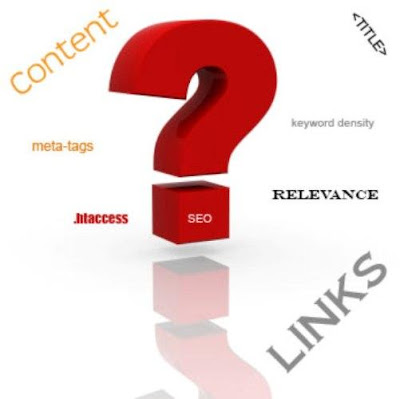When you optimise your website for SEO, your campaign really lives and dies by the on-page factors. Whether for a new website, a website re-design or an existing site, the following ten on-page factors are important to any SEO campaign and all make a contribution towards how well your site ranks in the search engines.
- Valid HTML: This helps developers to clean up their code. The HTML Validation tool at http://validator.w3.org checks your website's code and feeds back about errors and warnings. You may have failed to close a tag, added an extra character somewhere, duplicated attributes, etc. W3.org defines the HTML standards, meaning that if you have errors and warnings you are not completely compliant with best practice HTML.
While a small issue in the grand scheme of on-page SEO, every little helps when it comes to increasing the general perception of your website by the search engines, so meeting best practice standards by having error-free HTML can only be a good thing.
- Page Load Speed: Just like HTML validation, page load speed is a small consideration in the grand scheme of things, though Google has confirmed it is a ranking factor. The Google Page Load Speed tool gives you a score out of 100, and then tells you exactly what you need to do to improve that score to the letter. Google's tool will even give you optimised images of a smaller file size to replace your current ones to make it easier for you.
The optimum speed is over 80 out of 100, and with all the help that tool provides, you really have no excuse to avoid making the simple changes.
- Internal Linking: The internal links on your website can help to point Google in the right direction to work out which pages should rank for which keywords. While the search engine algorithms are very intelligent, give them a helping hand when you can to point them in the direction you want!
- Rel="Canonical": If you have pagination on your website, for example multiple pages of product listings, you should look at using a rel="canonical" tag to ensure that all of those extra pages point back to the original page. This ensures just the original page gets indexed in Google, not the many pages of duplicate content.
- Working Links: It may seem obvious, but if any of the links on a website don't work then it devalues your entire domain in the eyes of the search engine robots, as they have to spend time backtracking and working out where they should go next. Search engines also realise this is bad for the user and this can damage your listings.
One or two broken links may be a mistake, but if the search engine spider finds many broken links then your rankings will suffer, and you will annoy your users and potential customers.
- URLs: Create a linear URL structure for your website as both users and search engines will find this easy to understand. Your URLs should be optimised to include keywords and should follow the structure of the website, for example /dvds/sport-dvds/product-name. Some websites have URLs with random characters such as /786858/?34543543543, and the subject of these could be anything.
The URL is one of the first clues to a search engine what a page is about and you should make it very obvious by including the keywords that you want Google to see in the URL - within reason and in a natural way, of course.
- Website Structure: A well-structured website can help search engines to find all your pages by making it easier for their robots to find their way around the site, as well as doing the same for the users.
It is also imperative that within that structure you have only one page for each group of keywords; for example, one for "jobs in medicine" rather than having "job in medicine" and "medicine jobs" pages as well.
- Titles: Along with the URL, titles are the first indication to the search engines of the subject of your page, so you should ensure your titles are descriptive. The keywords should be in your title in a natural way and should tell both search engines and users exactly what they will find on that page.
- Unique Content: Having duplicated content (i.e. exactly or mostly the same) on multiple pages of your website may lead to all of those pages being excluded from the listings, or as a best case scenario will mean a less important page is listed instead of a target page.
- Great Quality Content: Don't add just any old content to your website; make your content entertaining, useful and relevant. Google will not index pages if it believes feels the content is generic or simply of poor quality. Your content must also serve the purpose of driving conversions by actually speaking to the audience and telling them what they need to know.
So there you have it – 10 top tips for making sure your get your on-page optimisation right. There are many other ranking factors and this is not some magical quick fix for your SEO woes, however follow these tips as a base guide and you will definitely be going in the right direction!
This post was written by Ian Collins of I-COM, an Internet Marketing Agency that provides services including website development and SEO services in Manchester.










nice info..thanks for sharing
ReplyDelete